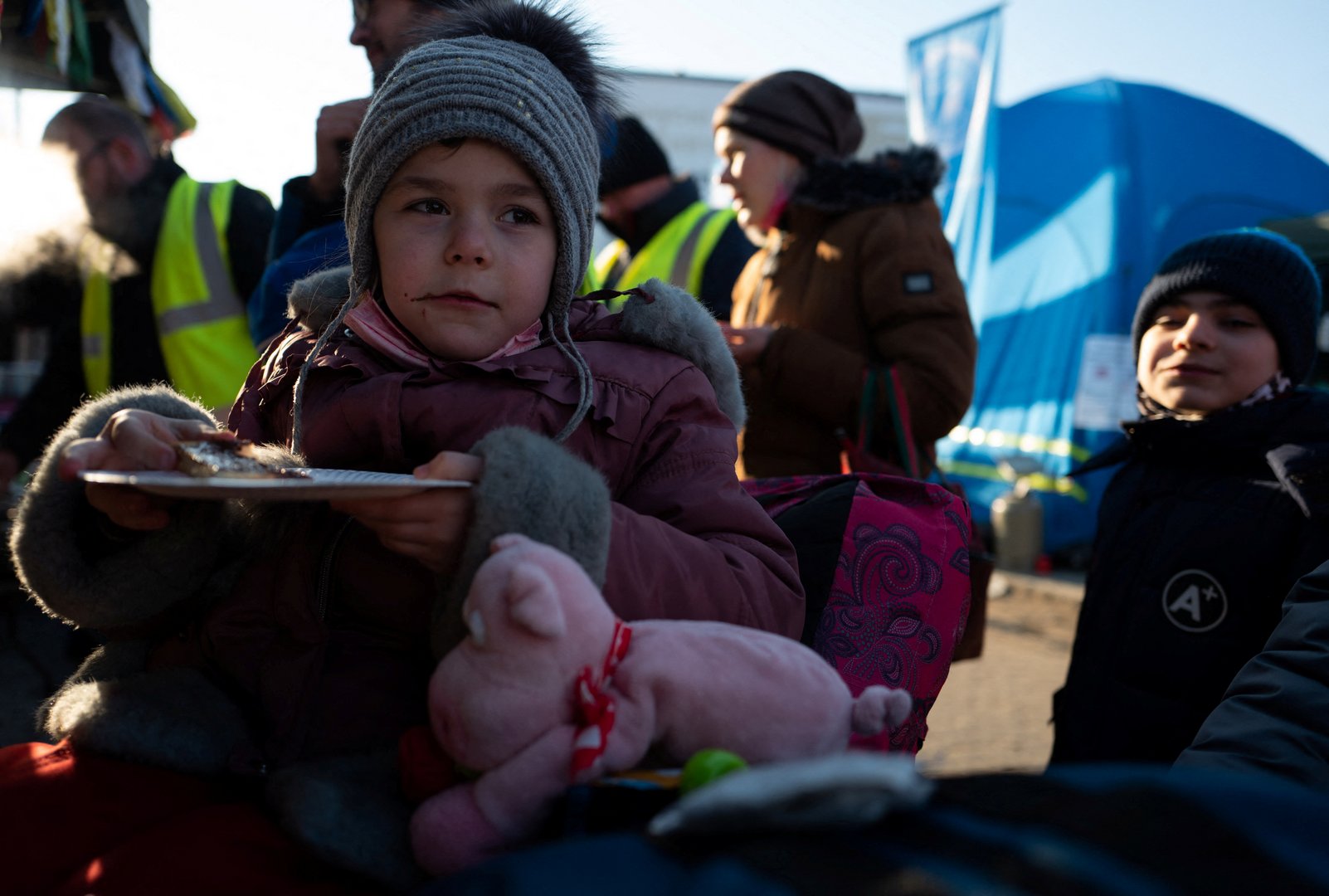The Syrian and Ukraine crises have highlighted the flaws in the current refugee protection system
Like the Syrian refugee crisis, the current displacement of people caused by the war in Ukraine raises once again the need to reset international refugee protection into a more people-friendly and realistic system for dealing with the irregular movement of people across frontiers in time of war.
The current system under the 1951 Refugee Convention as originally conceived was designed to limit protection to those outside their country of nationality as a result of events before January 1, 1951 owing to a well-founded fear of persecution. States were, however, given the choice whether to confine protection to those displaced only by events in Europe. Most European states did not choose this option, but it shows it can be done by reference to geography.
The 1967 Refugee Protocol removed the time limit but retained the geographical limit for states that chose to limit protection to those who became refugees as a result of events in Europe before January 1, 1951.
Turkey for example signed up to offer refugee protection but only to people who became refugees in Europe before 1951 – the majority of refugees who availed themselves of this were Turkish speakers from the Ottoman Empire’s former European territories.
Turkey did take in an estimated three million Syrian refugees at the height of the war in Syria after 2011, but it did so not as a matter of obligation under international refugee law but under its own system apart from its obligations under the Refugee Convention and Protocol. The EU for its part extended protection on humanitarian grounds over and above the Refugee Convention and Protocol.
Syrian refugees also fled to other neighbouring countries like Lebanon and Jordan and more controversially a million were offered refugee status in Germany. It is, however, true that apart from Chancellor Angela Merkel’s generous welcome in Germany, Syrian refugees were not welcome in Europe – particularly in East Europe where they were treated as barbarian invaders.
By contrast, Ukrainian refugees are very welcome in the whole of Europe. The ministry of the interior (Home Office) in Britain has been less welcoming, but the British people are ahead of their government in their wish to welcome Ukrainian refugees – even offering to house them in their own homes.
Both the Syrian and Ukrainian refugee influxes prove beyond doubt that the worldwide protection offered by the 1951 Convention and 1967 Protocol is in urgent need of reform the better to reflect the way people in host communities really feel rather than the system designed to purge Europe’s guilt for the Holocaust, which was what inspired the Refugee Convention.
Refugee protection is easily understood by most people as a temporary expedient to help one’s neighbours in their hour of need and provide them with refuge from war and persecution. But it becomes a problem when the numbers involved are large, the refuge sought is likely to be permanent, the refugees come from countries that are culturally different and the system is susceptible to abuse by immigrants who are not genuine refugees.
It should be easy to get international agreement to amend the 1951 Refugee Convention so as to introduce a geographical limit to refugee protection to those displaced from regions that are culturally within the tolerance threshold of the indigenous population of host states.
No system of refugee protection is going to be perfect, but the one that exists at present has had a deleterious effect on the perception of refugees that flies in the face of the idea of securing their protection. The Ukrainian crisis shows what the attitude of people to refugees should be, but in my experience this is the first time refugees have been sincerely welcomed with open arms. The Hong Kong Chinese have been welcomed by the UK government, but they have not received the outpouring of sympathy and welcome currently extended to Ukrainians.
Perhaps the revulsion at Russia’s invasion and the indiscriminate bombing of civilians and the wanton destruction of their lives and livelihoods that people see daily on their TV screens is a
contributory factor, but the destruction in Syria was no different – in fact it was worse because chemical weapons were used on innocent civilians there that have not yet been used in Ukraine.
The Palestinians, the Cypriots, the Lebanese, the Iranians, the Sri Lankan Tamils, the Kurds, the Iraqis, the Afghans and the Syrians were not welcome and neither were refugees from Sub Saharan Africa or North Africa or the Horn of Africa. Some have been granted refugee status, but they were reluctantly tolerated rather than welcome.
Hungary and Poland, two states that put up barbed wire to keep the Syrians and other non-Europeans out, have now done a volte face when it came to Ukrainians, which shows the need to change refugee law to reflect the real, if unpalatable, feelings of the people rather than the ideals of the noble souls that drafted the 1951 Refugee Convention.
Central Europeans tell it the way it is without even the pretence of liberal hypocrisy. Ukrainians look like Hungarians and Poles and have a similar culture. The Syrians and Afghans and Iraqis are culturally different and although many Syrians, including President Bashar al-Assad have blue eyes, they are not as culturally similar as Ukrainians are to Hungarians and Poles. Sad but true!
As a Cypriot and a Levantine I am socially and culturally close to Syrians and Lebanese and at least the Lebanese have traditionally been welcome in Cyprus, which proves the issue of my enterprise this week.
Protect refugees but keep them geographically and culturally local. It is alas the way of democracy in an imperfect world.
Alper Ali Riza is a queen’s counsel in the UK and a retired part-time judge







Click here to change your cookie preferences